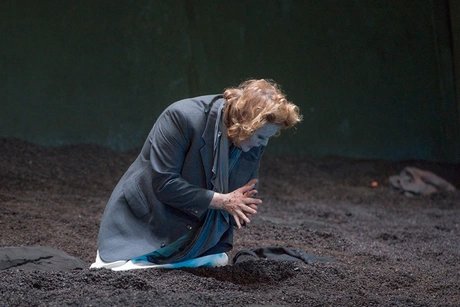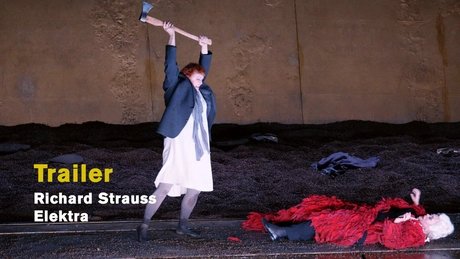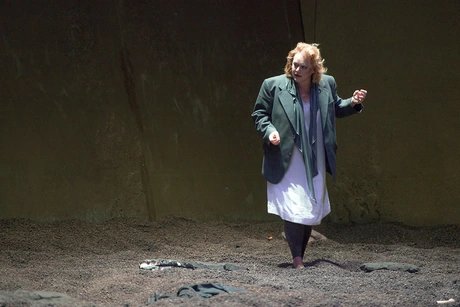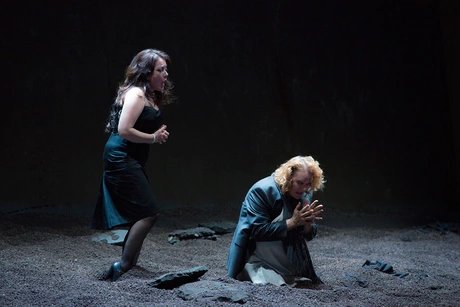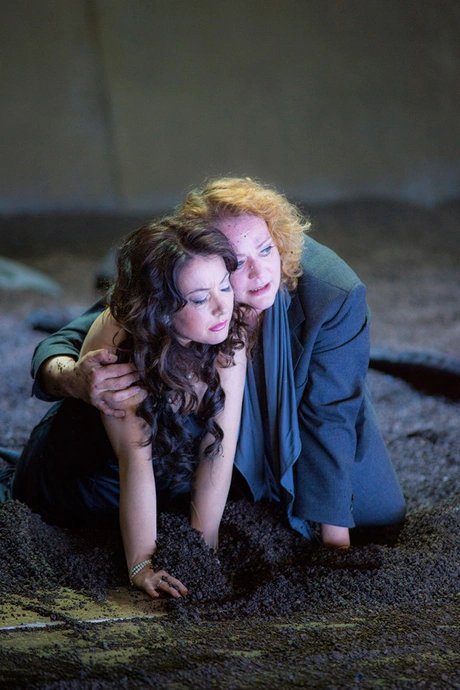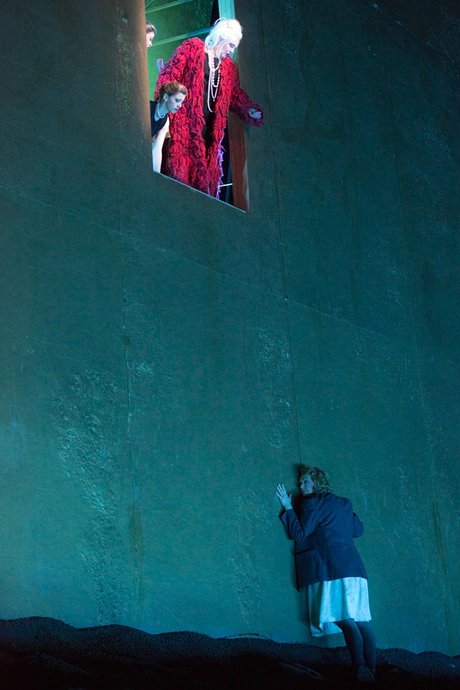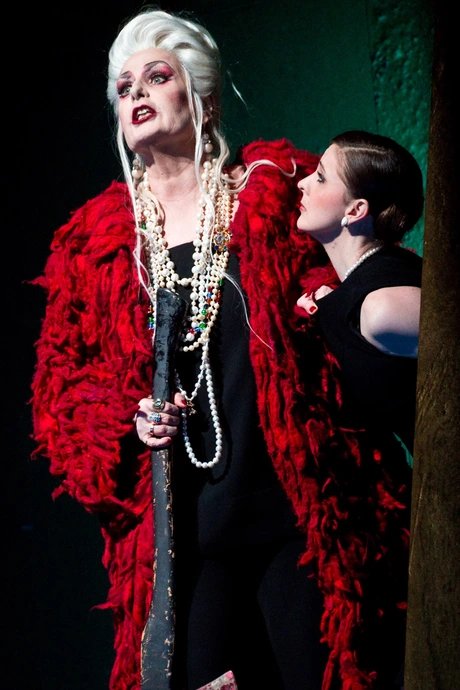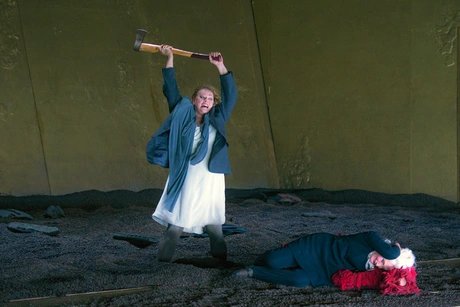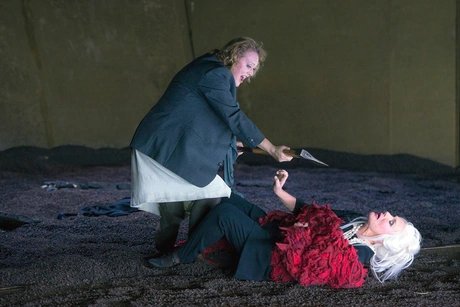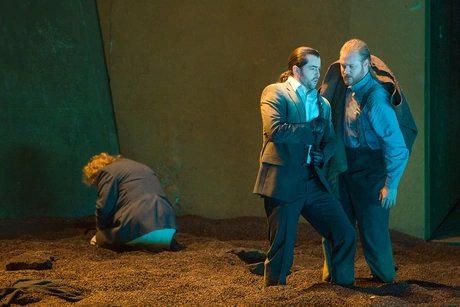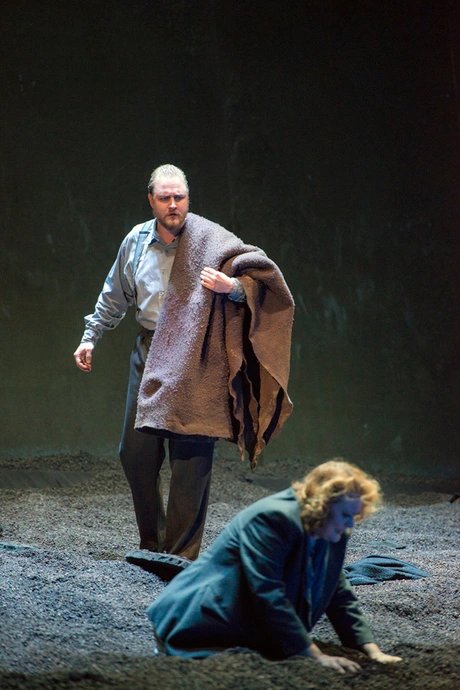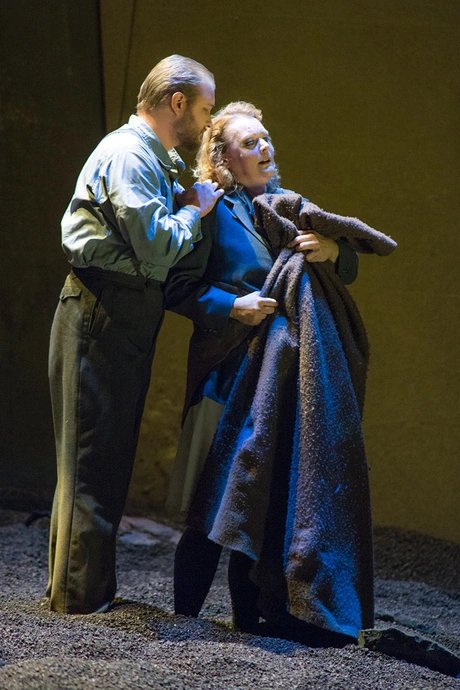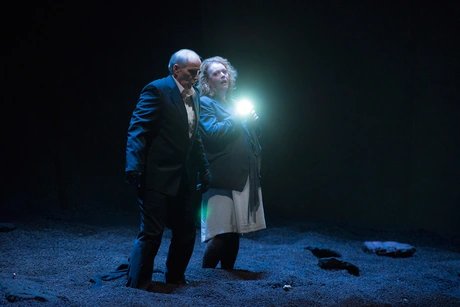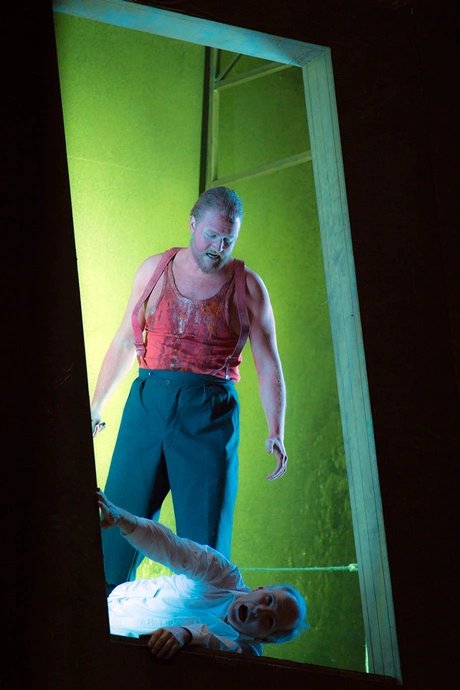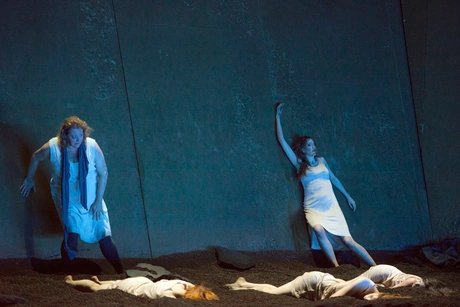
In Richard Strauss's expressive opera Elektra, a psychological state of emergency breaks out: Consumed by the pain of the murder of her father Agamemnon, Elektra spirals into an obsessive quest for revenge.
Director Kirsten Harms gives this gripping one-act opera at the Deutsche Oper Berlin a haunting contemporary relevance – with a production that reveals the horror within.
About the Plot
In the gloomy courtyard of the palace at Mycenae, Elektra lives in deep isolation. While the court taunts her, she lives for only one goal: bloody revenge on her mother Clytemnestra and her lover Aegisthus. When Elektra's brother Orestes, believed to be dead, unexpectedly returns, the tragedy unfolds. With the murder of the guilty, justice seems to be restored – but for Elektra herself, there is no redemption: she dances herself to death in an ecstatic finale.Music and Staging
Strauss's score pushes the orchestra to its limits – extreme dynamics, harsh sonic masses, and the finest psychological nuances characterize Elektra as one of the most intense works of musical theater. The title role demands maximum vocal and emotional expressiveness. Kirsten Harms stages Elektra as an oppressive chamber play about the horror of inner emptiness and the destructive power of suppressed grief.
Cast and Musical Direction
- Conductor: David Afkham
- Director: Kirsten Harms
- Featuring: Karita Mattila, Catherine Foster, Flurina Stucki, Tobias Kehrer, and others
Duration: approx. 1 hour 45 minutes / No interval
(Sung in German with German and English surtitles)
Additional information
Tragedy in one act
Poem by Hugo von Hofmannsthal
First performance on 25th January, 1909 at Dresden
Premiered at the Deutsche Oper Berlin on 3rd November, 2007
Pre-performance lecture (in German): 45 minutes prior to each performance
Poem by Hugo von Hofmannsthal
First performance on 25th January, 1909 at Dresden
Premiered at the Deutsche Oper Berlin on 3rd November, 2007
Pre-performance lecture (in German): 45 minutes prior to each performance
Participating artists
David Afkham (Musikalische Leitung)
Kirsten Harms (Inszenierung)
Bernd Damovsky (Bühne, Kostüme)
Jeremy Bines (Chöre)
Silvana Schröder (Choreographie)
Karita Mattila (Klytämnestra)
Catherine Foster (Elektra)
Flurina Stucki (Chrysothemis)
Burkhard Ulrich (Aegisth)
Tobias Kehrer (Orest)
Padraic Rowan (Der Pfleger des Orest)
Aleksandra Meteleva (Die Vertraute)
Lucy Baker (Die Schleppträgerin)
John Irvin (Ein junger Diener)
Michael Bachtadze (Ein alter Diener)
Maria Motolygina (Aufseherin)
Stephanie Wake-Edwards (1. Magd)
Martina Baroni (2. Magd)
Arianna Manganello (3. Magd)
Maria Vasilevskaya (4. Magd)
Nina Solodovnikova (5. Magd)
Chor der Deutschen Oper Berlin (Chor)
Orchester der Deutschen Oper Berlin (Orchester)
Opernballett der Deutschen Oper Berlin (Tänzer)
Dates
February 2026
| Mo | Tu | We | Th | Fr | Sa | Su |
|---|---|---|---|---|---|---|
1
| ||||||
2
|
3
|
4
|
5
|
6
|
7
|
8
|
9
|
10
|
11
|
12
|
13
|
14
|
15
|
16
|
17
|
18
|
19
|
20
|
21
|
22
|
23
|
24
|
25
|
26
|
27
|
28
|
